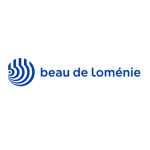European regulations provide the possibility for works of applied art to benefit from both design right protection and copyright protection (for artistic work). Each form of protection is subject to its own specific rules. The scope and conditions of protection by copyright are subject to national rules.
The Court of Justice of the European Union (CJEU) has clarified the conditions for protection by copyright.
The litigation involved a designer. He complained that several of his clothing designs had been copied and he claimed copyright protection for these designs as original intellectual creations, as they were works producing an aesthetic effect. The first and second instance courts in Portugal ruled that "copyright benefits applied art works, industrial design and design works as long as they present an original character, namely they result from an intellectual personal creation from their author, without requiring a certain aesthetic or artistic value", deciding that the relevant clothes designs indeed benefit from such protection.
The CJEU was then asked to rule on whether a design could qualify as a work of art under copyright law,on the sole condition that the design produces, beyond its utilitarian purpose, an aesthetic effect.
The court first underlined that the notion of work is an autonomous concept of the European Union that must be given a uniform interpretation throughout the union, and needs two cumulative elements:
An original object – this object must reflect the author's own personality, expressing his original and personal choices. An object only realised under technical considerations that do not allow any creative freedom cannot be qualified as original
An object that can be identifiedobjectively and precisely enough, so it may be clearly known. The object cannot be identified on the basis of sensations, which are inherently subjective
The court then ruled that the aesthetic effect that might result from a design derives from the subjective sensation of beauty felt by any person who looks at it and is not objective and precise. Hence, even if these aesthetic considerations contribute to the creation, the fact that an aesthetic effect results from the design per se is not sufficient to determine whether the design is a work of art (decision of September 12 2019 (C-683-17), on a preliminary question of the Portugal Supreme Court).
For the full version of this article, please click here: http://bit.ly/IPNewsBDL1019

|
Aurélia Marie |
Cabinet Beau de Loménie
158, rue de l’Université
F - 75340 Paris Cedex 07 France
Tel: +33 1 44 18 89 00
Fax: +33 1 44 18 04 23











